7 Ways to Consciously Transform Covid-19 Anxiety, Stress & Fear
With COVID-19 infections spreading worldwide, almost everybody has experienced some level of isolation, uncertainty, and feelings of overwhelm and helplessness. These are all hallmarks of anxiety. How well you respond to these challenges determines your health and well-being, and whether you are able to contribute meaningfully to the world.
We have all had prescriptions written for us by doctors, but what if we simply wrote our own? At first this may seem preposterous, yet we often seek from the ‘outside’ that which we already know on the ‘inside’. At The Haven, we believe that individuals have a vast potential for understanding themselves, while also being capable of resolving many of their own problems by tapping into their own inner authority/teacher. Yes, we all need expert guidance at times, and certainly doctors’ prescriptions are important to deal with our medical issues, including mental health. We acknowledge that one size does not fit all, so with the knowledge, skills, and practices we offer, we encourage people to find what works best for them by taking charge of their own self-care.
2 Types of Transformational Skills & Practices for Anxiety, Stress & Fear
Transformational skills and practices for addressing anxiety, stress, and fear can be separated into two categories. Both are important in times of increased uncertainty and disruption and we will cover both in more detail in our upcoming Online: Anxiety & Beyond… workshop.
1. Distress Tolerance Skills.
Ways to build your own resiliency or tolerance for the elevated energy of anxiety in your body-mind. The intention is to re-calibrate your nervous system: to slow down, soothe, rest, and even find ways to tap into compassion (for self and others). Find 5 practices to build this skill in our prescription list below.
2. Energy Reboot Skills.
Ways to increase and harness the elevated energy of anxiety in your body-mind, continue to achieve what you want, accomplish tasks, and build life- enhancing vitality. Find 2 practices to build this skill in our prescription list below.
It may be difficult to try one of these skills if you believe you are ‘under threat’, which underlies anxiety, fear and stress. This is normal: it’s an in-born survival mechanism to scan for threats in our environment. The first step to getting yourself into the present moment is to become aware of and acknowledge what’s going on around you. We’ll talk more about this in Online: Anxiety & Beyond…
7 Prescriptions for Anxiety, Stress & Fear
Below are 7 examples of practices (or prescriptions!) for building resiliency, grounding, recalibrating our nervous systems, and rebooting our energy. Five are Distress Tolerance Skills and two are Energy Reboot Skills. The invitation here is to try them and see what works for you.
Rx 1. Get Present: The Reality Check.
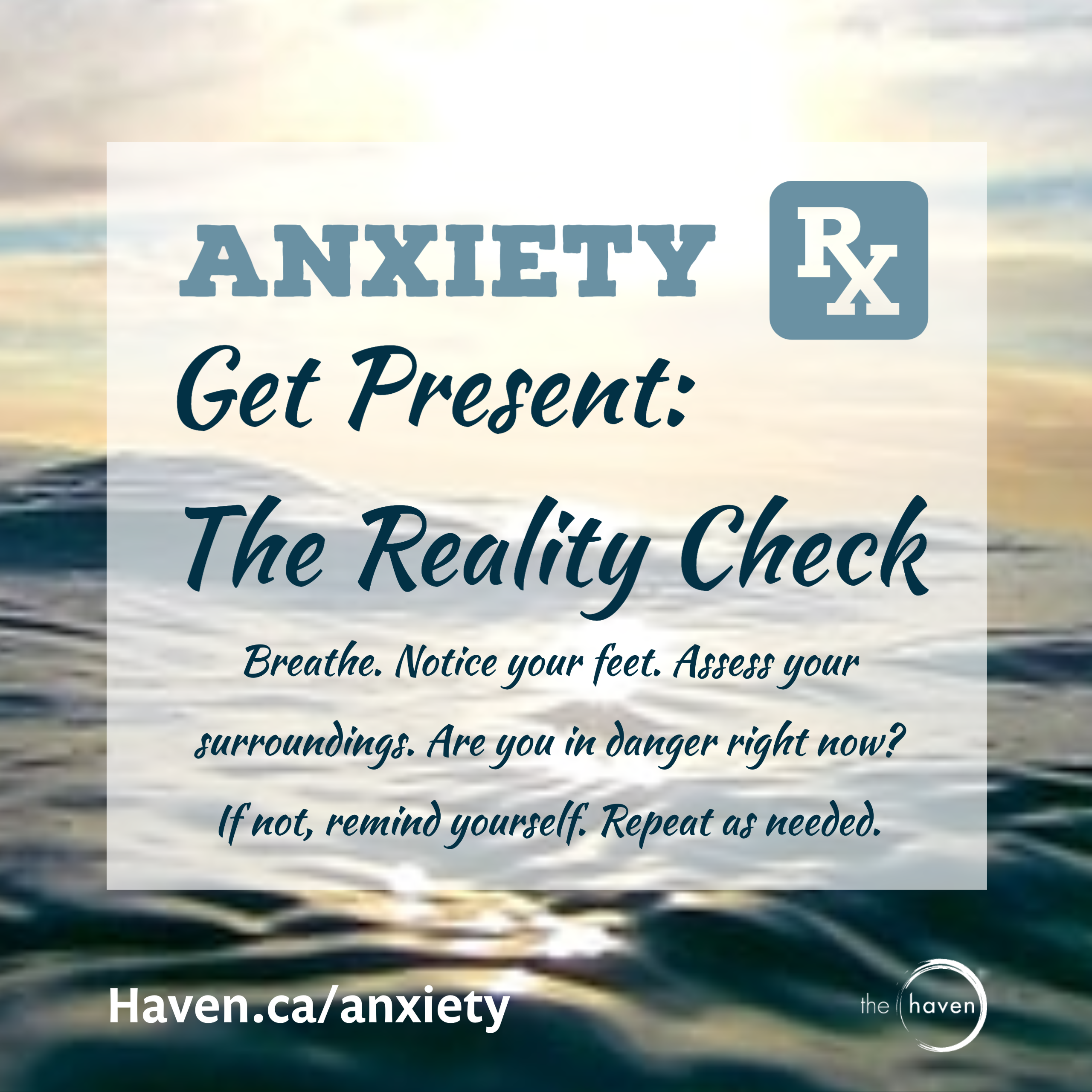 You can become aware by taking a deep breath (or more than one) and connecting with your body. One way to do this is to connect with your feet on the ground (sitting or standing). Simply notice your feet and try, with your mind, to direct your breath to your feet. Keep breathing and inviting yourself into the moment of this experience.
You can become aware by taking a deep breath (or more than one) and connecting with your body. One way to do this is to connect with your feet on the ground (sitting or standing). Simply notice your feet and try, with your mind, to direct your breath to your feet. Keep breathing and inviting yourself into the moment of this experience.
Then do a Reality Checklist (in writing or in your head).
Ask yourself: Am I in danger RIGHT NOW? Is there anything that is jeopardizing my personal safety RIGHT NOW?
If the answer is “no”, repeat back out loud, or to yourself, “There is nothing happening in this moment that is dangerous to me. I am safe”, and continue to breathe consciously until you feel more settled.
This is a foundational Distress Tolerance Skill to practice whenever you feel anxious.
Rx 2. The 5 ‘Ack’ Hack.
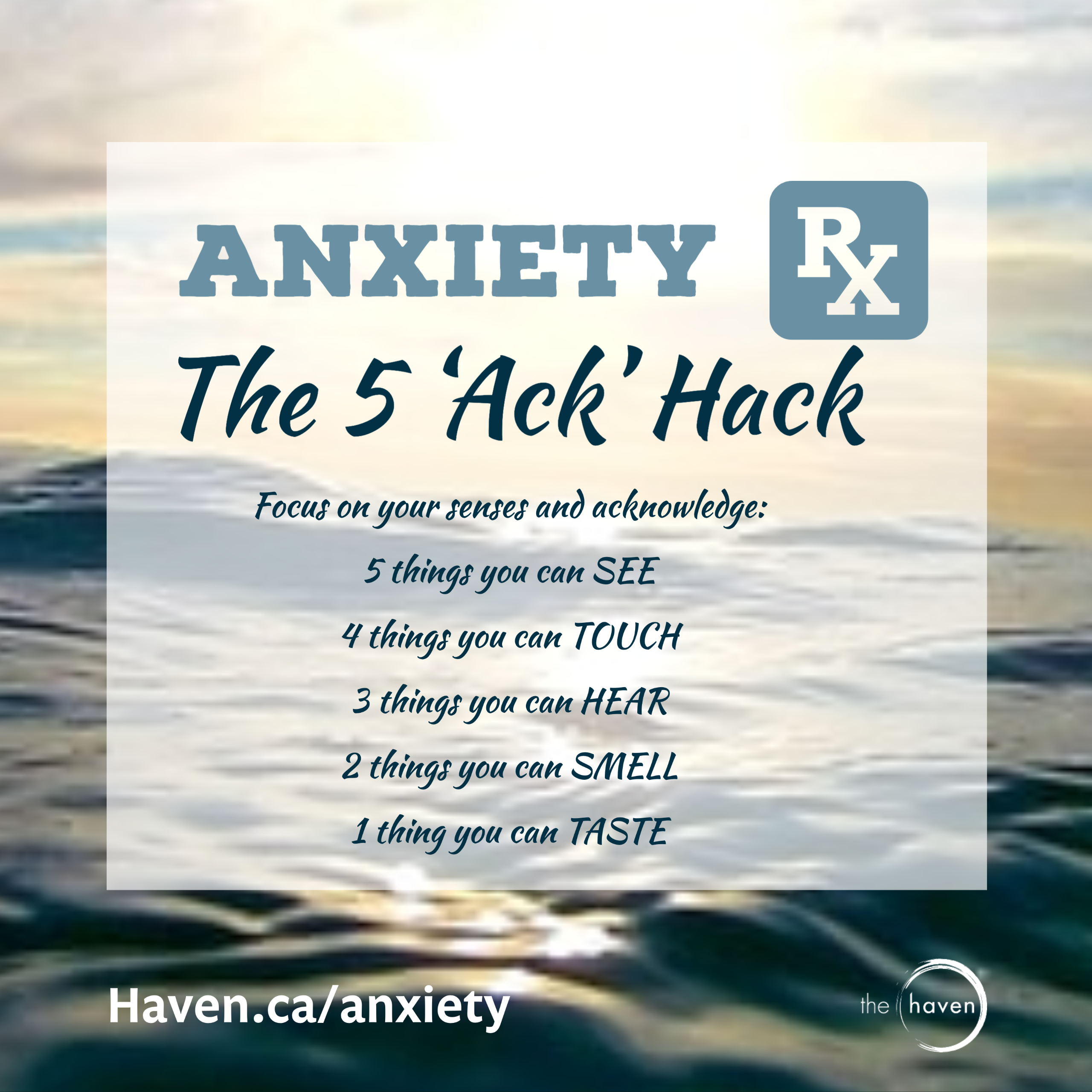 This five-step exercise is our Distress Tolerance Skill version of what is also called The 5-4-3-2-1 Grounding Technique. Acknowledging what sensory information is coming in can be very helpful in getting yourself present and grounded during periods of fear, anxiety or panic. You can start with rating your anxiety on a scale of 1-10, with 10 being extreme. Take slower, deeper, and longer breaths while you go through the following steps, counting down from 5 to 1, and accessing your 5 senses (sight, touch, hearing, smell and taste):
This five-step exercise is our Distress Tolerance Skill version of what is also called The 5-4-3-2-1 Grounding Technique. Acknowledging what sensory information is coming in can be very helpful in getting yourself present and grounded during periods of fear, anxiety or panic. You can start with rating your anxiety on a scale of 1-10, with 10 being extreme. Take slower, deeper, and longer breaths while you go through the following steps, counting down from 5 to 1, and accessing your 5 senses (sight, touch, hearing, smell and taste):
Breathe. Acknowledge 5 things you SEE around you. It doesn’t matter what they are, just say all five out loud. It helps to count on your fingers, too.
Breathe. Acknowledge 4 things you can TOUCH around you, and if you can, touch them.
Breathe. Acknowledge 3 things you HEAR. This could be any sound in the space around you. Listen carefully and you will be amazed at what your ears detect.
Breathe. Acknowledge 2 things you can SMELL. This one might be more challenging. Try picking something up that is close to you and check if it has a smell. You can also take a brief walk to find a scent you can smell.
Breathe. Acknowledge 1 thing you can TASTE. Notice what the inside of your mouth tastes like. Can you give it a description? You can also take a sip or a bite of something, if it’s nearby.
Breathe again and check how your body feels and what you are thinking. Rate your anxiety level again. If you still rate high, you can repeat the exercise. Often what you notice the second time is completely different, which is quite interesting.
Rx 3. Binge on Breath.
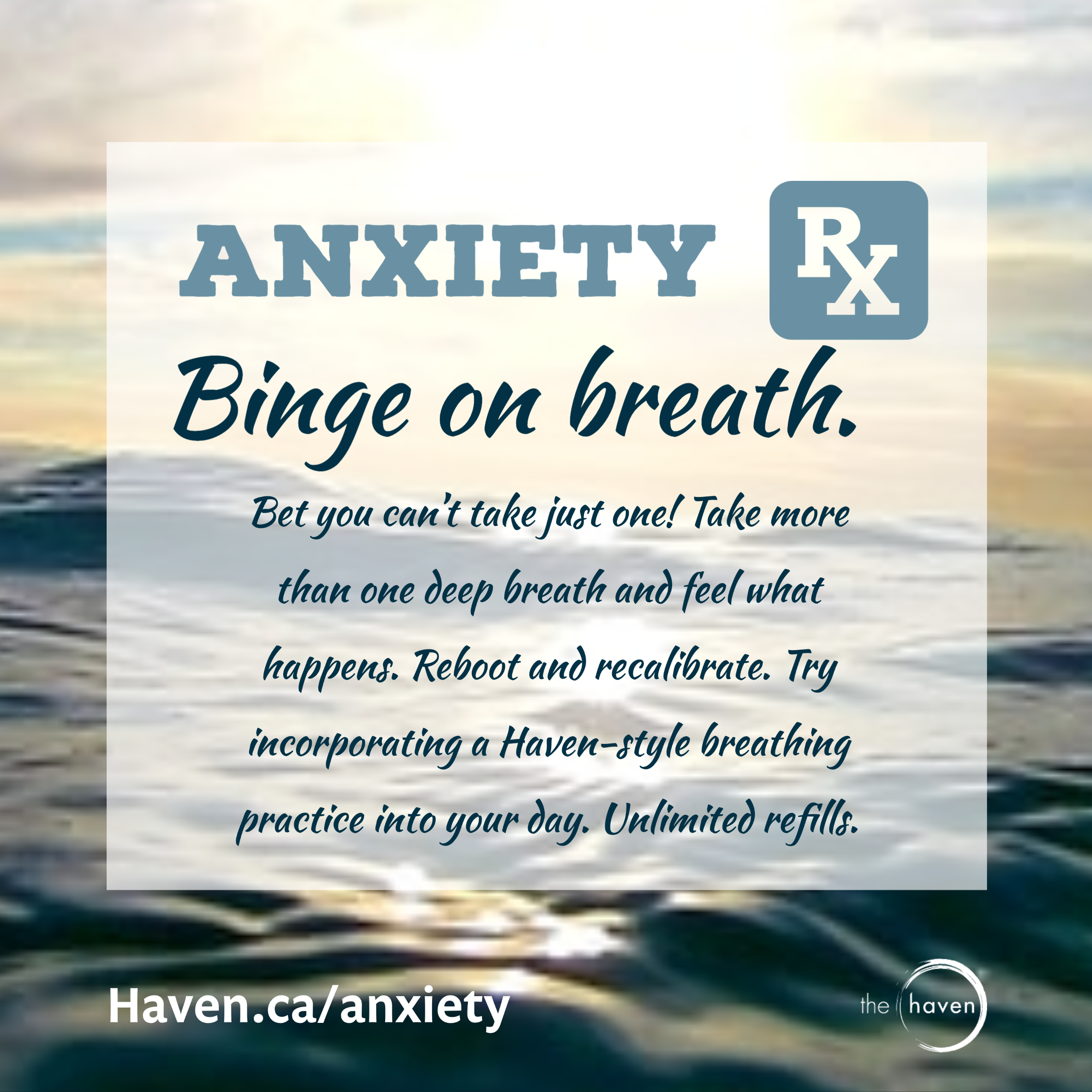 Bet you can’t take just one! Remember the last time you said, “I am never going to eat the whole bag of chips – I’ll just take one!” We support finding ways to trick ourselves into a new habit. Take more than just one deep breath and feel what happens! The good news is that this Energy Reboot Skill is calorie-and-guilt-free and can both reboot your energy and re-calibrate your nervous system. Conscious breathing can be done anytime and we also recommend trying on a Haven-style breathing practice of 10-20 minutes a day, like this one.
Bet you can’t take just one! Remember the last time you said, “I am never going to eat the whole bag of chips – I’ll just take one!” We support finding ways to trick ourselves into a new habit. Take more than just one deep breath and feel what happens! The good news is that this Energy Reboot Skill is calorie-and-guilt-free and can both reboot your energy and re-calibrate your nervous system. Conscious breathing can be done anytime and we also recommend trying on a Haven-style breathing practice of 10-20 minutes a day, like this one.
Rx 4. The Ragdoll Shake.
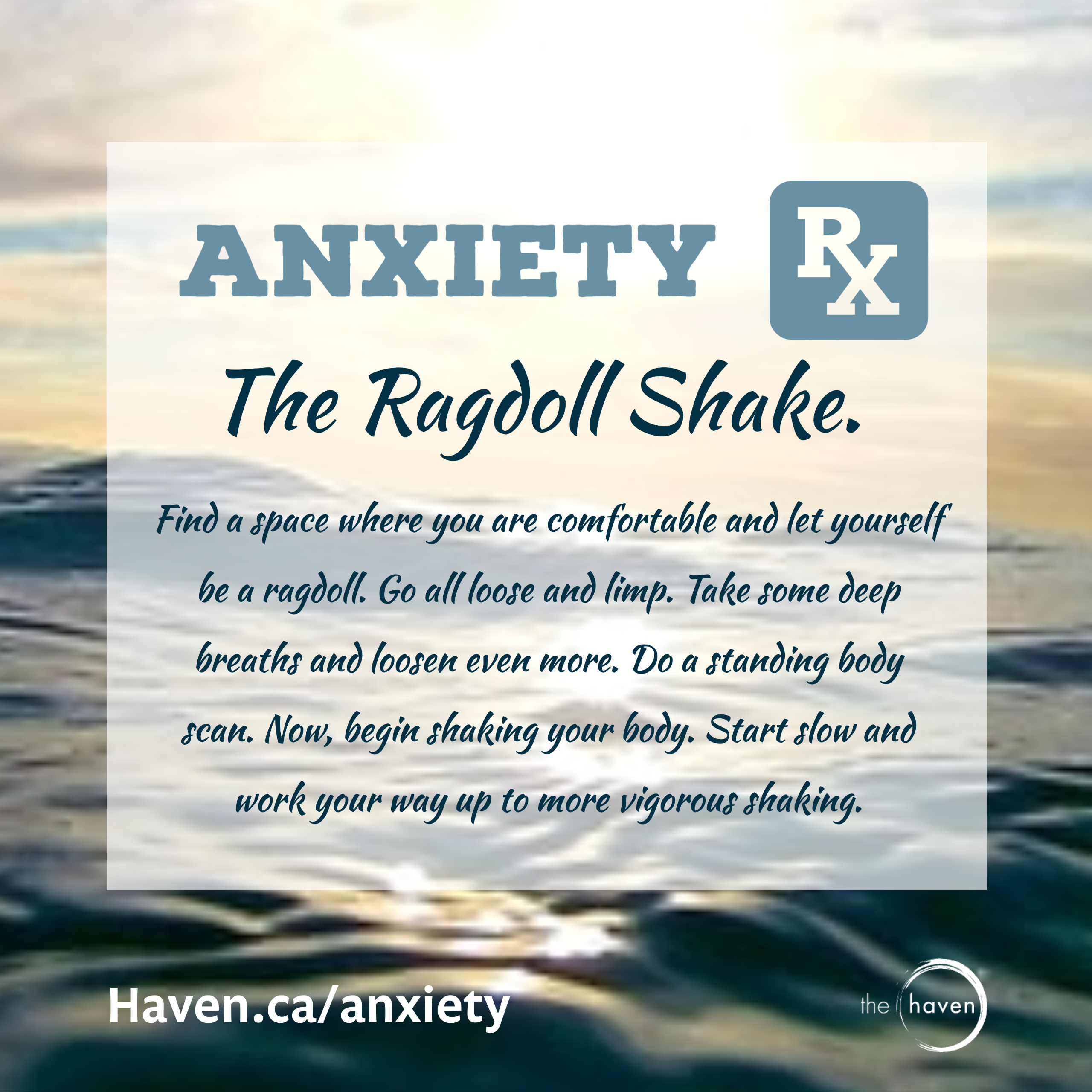 Do you have the image in your mind already? Holding a ragdoll limp in your hands and then giving it a shake to see how it moves? We propose you do the same with yourself with this Energy Reboot Skill!
Do you have the image in your mind already? Holding a ragdoll limp in your hands and then giving it a shake to see how it moves? We propose you do the same with yourself with this Energy Reboot Skill!
Find a space where you are comfortable and let yourself be a ragdoll. Go all loose and limp.
Take note of how you are feeling and what you are thinking. Take some deep breaths and invite your body to loosen even more.
Do a standing body scan, let your jaw soften, imagine your shoulders melting down, let your arms hang loose at your sides, soften your belly, pelvis, hips, legs, knees and ankles.
Become a standing ragdoll in your mind. Now, begin shaking your body. You can start anywhere, but the aim is to loosen and shake as much of your body as possible. You can start slow and then work your way up to vigorous shaking (maintaining awareness of your own physical limitations).
Your imagination goes a long way here: imagine shaking the roots of the hair on your scalp or shaking all 206 bones in your body – perhaps all 650 muscles!
If you have moved a lot and feel your heart rate is high, slowly decrease your movement to come back to stillness. Check how you feel in your body: what sensations are you aware of?
Often people like to start their day with a Ragdoll Shake as a morning meditation. We recommend at least a good 5 minutes of full-body shaking. And, for more energizing impact, try it for 15 minutes. You can do this with music or in silence. One of our favourites is ‘Breath Connects Us All’ by Professor Trance and the Energizers It can be a fun family activity in these times of social distancing.
Rx. 5. The Handy Love Wash.
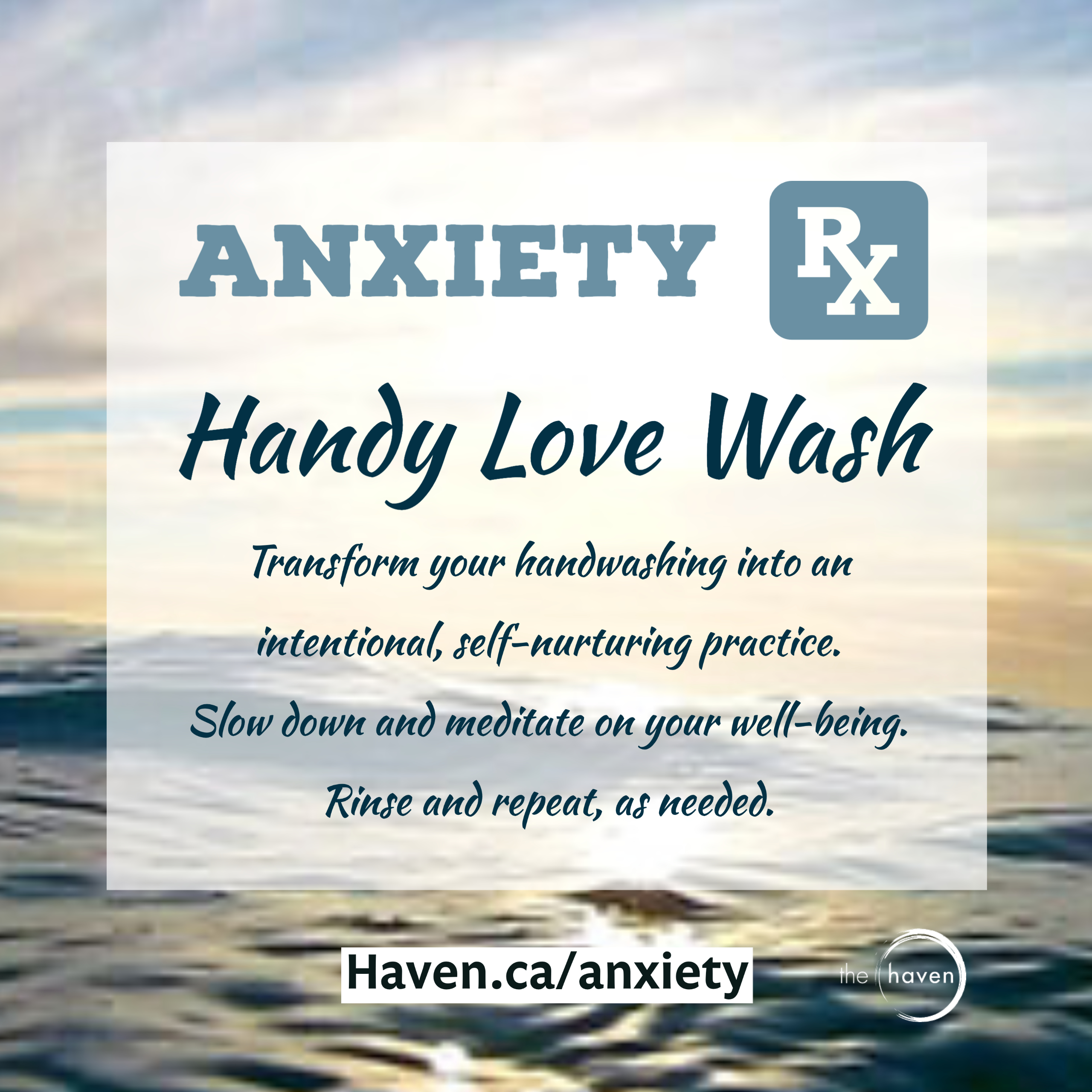 We love this Covid-19 Distress Tolerance Skill Practice, inspired by The Strozzi Institute in California. Consider transforming your handwashing into an intentional, self-nurturing practice. Take time to slow down and meditate on your well-being and that of those around you. Each time you wash your hands, send loving and compassionate thoughts to yourself, your family and friends, your communities, and to the world. Practice handwashing not just to protect yourself, but to protect those around you. Revel in the power of this intentional embodied practice to affect our planet positively.
We love this Covid-19 Distress Tolerance Skill Practice, inspired by The Strozzi Institute in California. Consider transforming your handwashing into an intentional, self-nurturing practice. Take time to slow down and meditate on your well-being and that of those around you. Each time you wash your hands, send loving and compassionate thoughts to yourself, your family and friends, your communities, and to the world. Practice handwashing not just to protect yourself, but to protect those around you. Revel in the power of this intentional embodied practice to affect our planet positively.
Rx 6. (Social) Media Discernment or Distance.
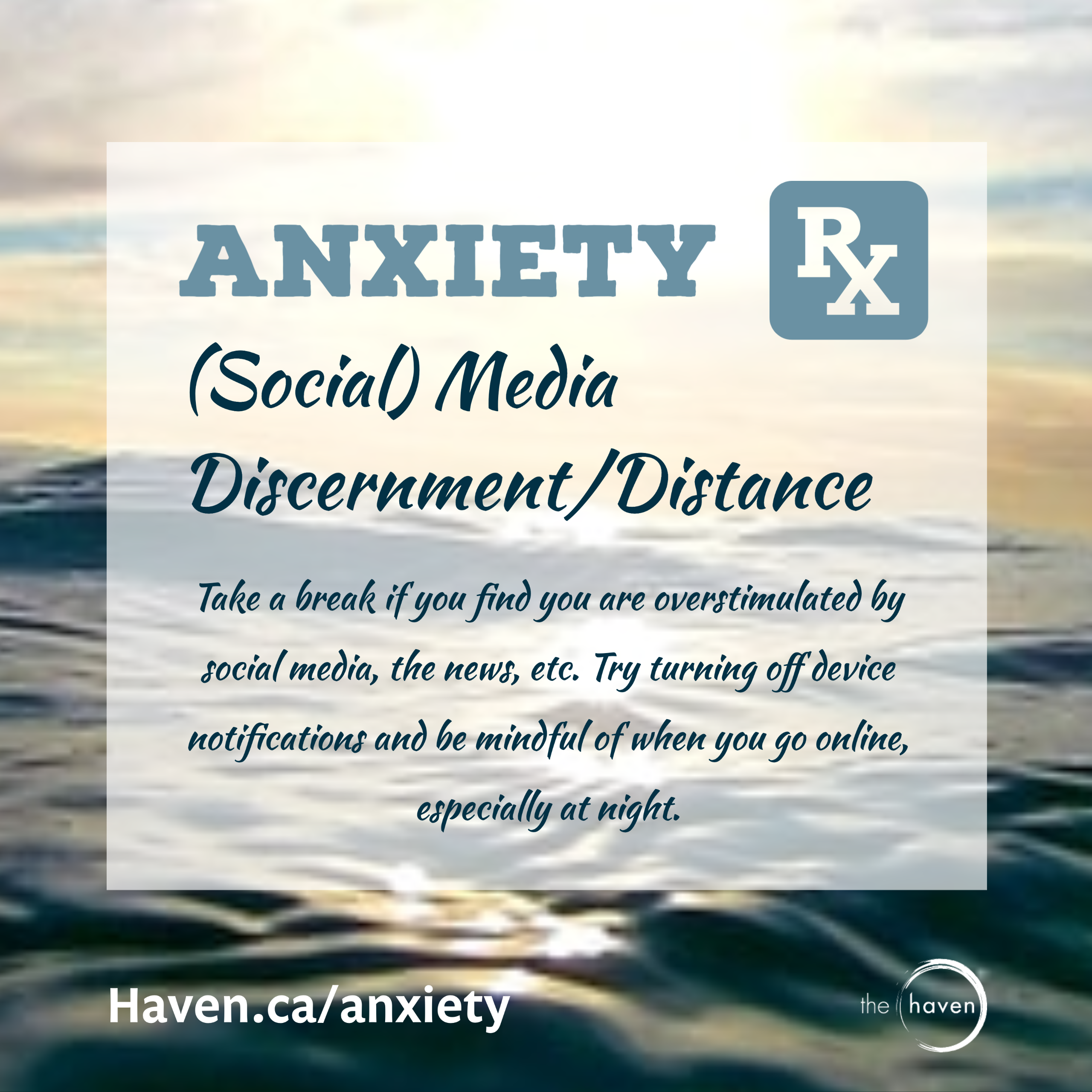 With so much information available to us all the time and with things happening so quickly, it is important to protect ourselves from information overload. If you find you are being overstimulated by what you are reading/seeing, take a break and practice one of the transforming skills.
With so much information available to us all the time and with things happening so quickly, it is important to protect ourselves from information overload. If you find you are being overstimulated by what you are reading/seeing, take a break and practice one of the transforming skills.
Turn off your device notifications and be mindful of when you go on-line, look at social media or take in the news, especially at night. That’s when you may have difficulty shutting off your mind. Set an alarm if you find yourself on-line for too long each day.
This Distress Tolerance Skill is developed by making clear choices.Let yourself stay informed in ways that work for you to stay present and grounded. We need this for our individual and community well-being.
Rx 7. E-Engage.
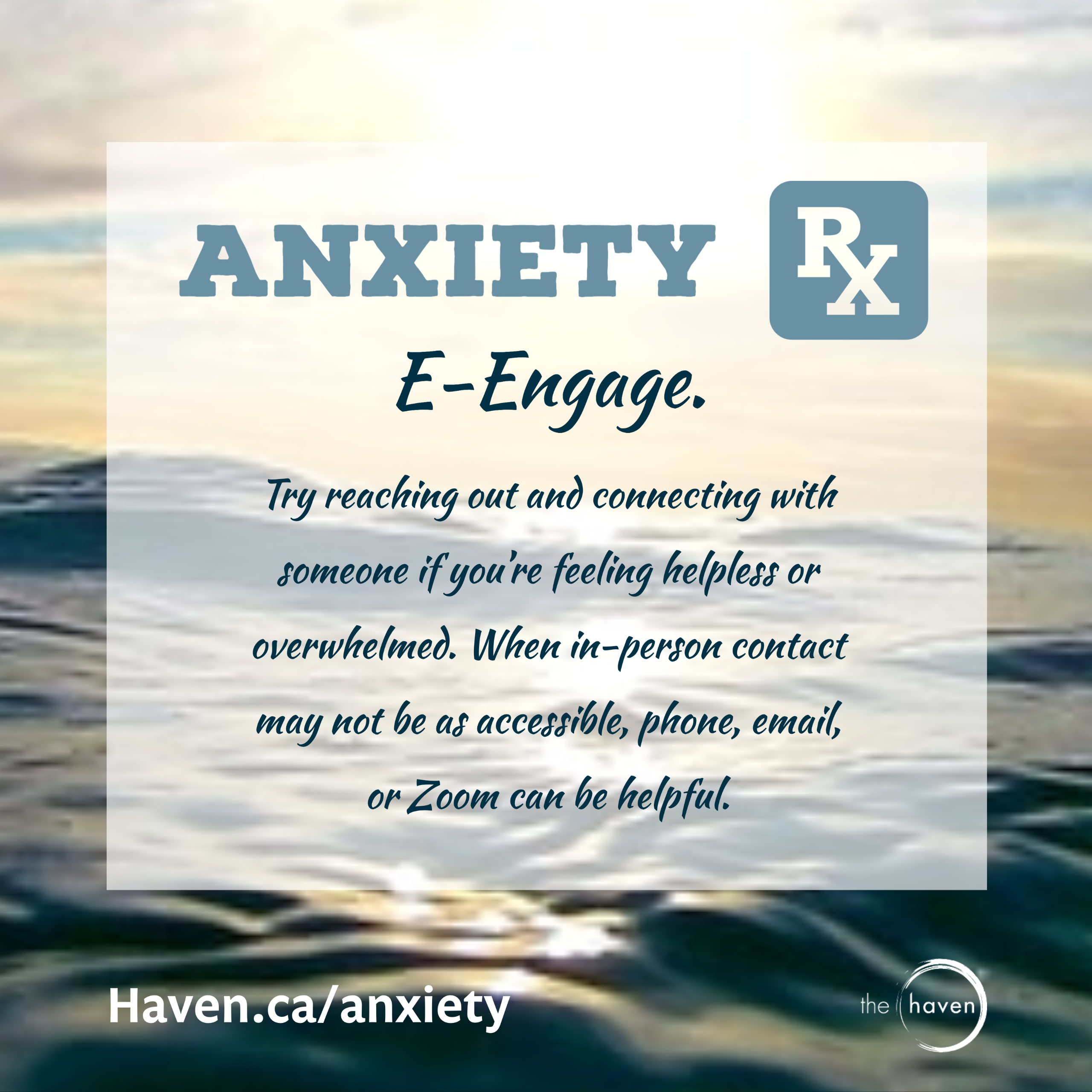 Anxiety and fear are problematic when we believe we are helpless. This occurs when we are not grounded in a larger, more relational and responsive existence. It’s crucial to stay connected with each other, with the people who matter most in our lives.
Anxiety and fear are problematic when we believe we are helpless. This occurs when we are not grounded in a larger, more relational and responsive existence. It’s crucial to stay connected with each other, with the people who matter most in our lives.
Technology can be a blessing when we’re feeling helpless or fearful because it can keep us connected with each other. Reaching out on-line or by telephone may not be what you are used to, and it may take courage to tackle and accept this “new normal”.
E-engaging can reboot your energy and assist with increasing your Distress Tolerance. It’s useful to track how you feel before and after you take a risk to reach out.
What’s next?
Do you have your own prescription for anxiety, stress, or fear? Did one of ours work well for you? We want to know! Please share with us in the comments below, or on The Anxiety Café Facebook page. Better yet, share and engage with others LIVE in Online: Anxiety & Beyond… on November 15th. We believe this event will assist people first to ‘manage’ their anxiety, and then, with its transformation, to move beyond the fear and discomfort. We believe we can work with the ‘elevated energy’ of anxiety, as well as lean into it, when it’s necessary to “Keep Calm and Carry On”! We’ll be introducing you to some of our favourite ways to transform or move beyond anxiety and stress: some developed by others, some that worked for us individually or when we work with people, and some specific to our program and the Online: Anxiety & Beyond… event. Learn more and register here: https://haven.ca/anxiety
About the Authors:
 Jennifer CEC, DipC, Owner, Take The Next Step Coaching, is an empathetic relationship focused coaching practitioner and facilitator. Her passion is building healthy relationships and enabling people from all walks of life to reach their maximum well-being and potential. Her professional background includes developing leadership programs and transforming organizational culture. Jennifer has a Graduate Certificate in Executive Coaching from Royal Roads University and a Diploma in Counselling and Group Facilitation from The Haven. Jennifer is a Haven Coach and Speaker and also co-leads Transforming Anxiety & Stress, Online: Anxiety & Beyond… and Communication Intensive: From Fundamentals to Mastery (formerly Dynamic Dialogue).
Jennifer CEC, DipC, Owner, Take The Next Step Coaching, is an empathetic relationship focused coaching practitioner and facilitator. Her passion is building healthy relationships and enabling people from all walks of life to reach their maximum well-being and potential. Her professional background includes developing leadership programs and transforming organizational culture. Jennifer has a Graduate Certificate in Executive Coaching from Royal Roads University and a Diploma in Counselling and Group Facilitation from The Haven. Jennifer is a Haven Coach and Speaker and also co-leads Transforming Anxiety & Stress, Online: Anxiety & Beyond… and Communication Intensive: From Fundamentals to Mastery (formerly Dynamic Dialogue).
 Laurel is a dog-mom, introverted people-person, mac and cheese enthusiast, and loves to learn about the brain and nervous system. She resides in Coquitlam with her husband, and is currently working remotely as a clinical counsellor. Laurel is on a lifelong, professional and personal journey, on embracing and living with anxiety.
Laurel is a dog-mom, introverted people-person, mac and cheese enthusiast, and loves to learn about the brain and nervous system. She resides in Coquitlam with her husband, and is currently working remotely as a clinical counsellor. Laurel is on a lifelong, professional and personal journey, on embracing and living with anxiety.
 Solanna (MA) is a workshop facilitator with a background in writing, embodiment and sex education. She manages the Anxiety Cafe on social media and has been assisting anxiety courses at the Haven for the last four years. She is certified in Counseling Skills (Haven), Journalling Facilitation (Centre for Journal Therapy) and Somatic Sex Education (Institute for the Advanced Study of Human Sexuality).
Solanna (MA) is a workshop facilitator with a background in writing, embodiment and sex education. She manages the Anxiety Cafe on social media and has been assisting anxiety courses at the Haven for the last four years. She is certified in Counseling Skills (Haven), Journalling Facilitation (Centre for Journal Therapy) and Somatic Sex Education (Institute for the Advanced Study of Human Sexuality).
 Scott is a Haven intern working toward his Diploma in Haven Group Facilitation (Dip HGF). Scott first came in The Haven in 2009 for Come Alive and participated in Transforming Anxiety & Stress the following year. Since 2015 Scott has become part of the program’s leadership team, sharing his transformative experience with dozens of others to help them reframe and shift their own relationship with anxiety. Scott lives and works in Victoria, BC as a contractor and musician along with his 2 kids.
Scott is a Haven intern working toward his Diploma in Haven Group Facilitation (Dip HGF). Scott first came in The Haven in 2009 for Come Alive and participated in Transforming Anxiety & Stress the following year. Since 2015 Scott has become part of the program’s leadership team, sharing his transformative experience with dozens of others to help them reframe and shift their own relationship with anxiety. Scott lives and works in Victoria, BC as a contractor and musician along with his 2 kids.
 David, DipC MEd RSW, seeks to encourage transformational presence in all aspects of one’s personal and professional life. He has worked locally and internationally with individuals, groups and businesses for over 45 years, and is a senior faculty member of The Haven on Gabriola Island. David has led Haven’s flagship ‘Come Alive’ program for 25 years, as well as many workshops of his own design. He also co-leads Couples Alive, and has co-authored the book ‘Living With Passion’, with Sandey McCartney, his life and work partner of 36 years.
David, DipC MEd RSW, seeks to encourage transformational presence in all aspects of one’s personal and professional life. He has worked locally and internationally with individuals, groups and businesses for over 45 years, and is a senior faculty member of The Haven on Gabriola Island. David has led Haven’s flagship ‘Come Alive’ program for 25 years, as well as many workshops of his own design. He also co-leads Couples Alive, and has co-authored the book ‘Living With Passion’, with Sandey McCartney, his life and work partner of 36 years.

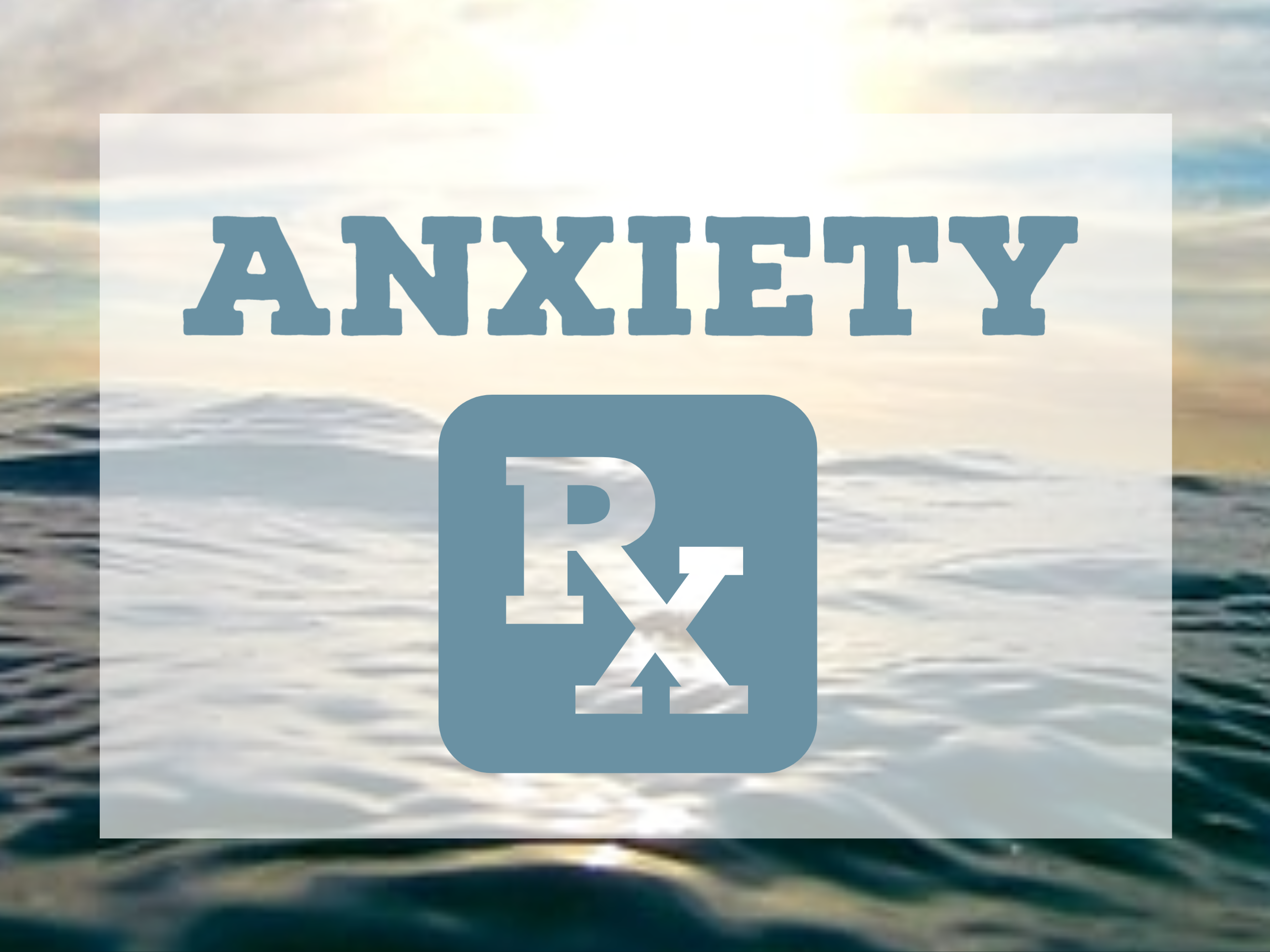
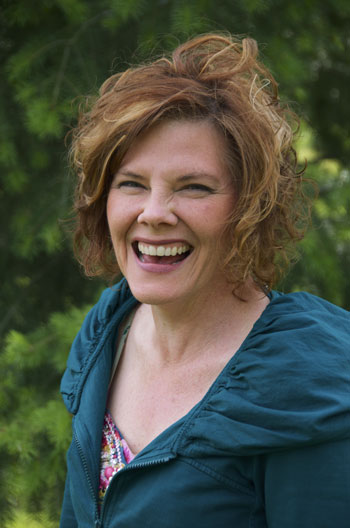
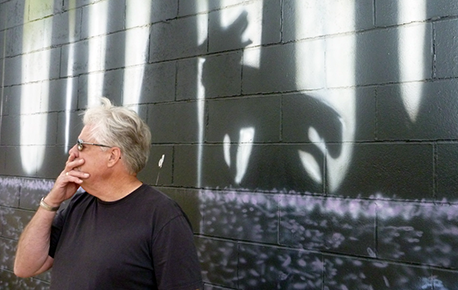

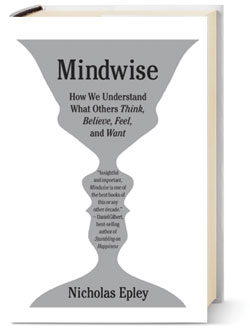
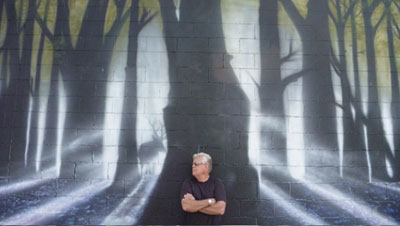
7 Ways to Consciously Transform Covid-19 Anxiety, Stress
Love the memes and simple strategies to support self-regulation. Will be sharing it on my social media platforms. The world needs to understand that these simple strategies support nervous system health by helping to re-set/restore/recalibrate neurological states in ways that the wisdom of the thinking brain can not reach. AND – a no-strings attached offer to you and your team to experience one of my Rest and Restore sessions based on my certification in various energy modalities (Healing Touch and Sound Therapy) – which are in alignment with the certification I recently acquired in HeartMath through their Anxiety, Stress and Emotional Self-Regulation training. The session happens on Zoom; takes 30 minutes; and incorporates a mix of trauma-informed strategies including guided meditation, breath work, intention and sound therapy. Much love and light to you all as you support personal health and wellbeing – it’s needed more in these times of dis-regulation now more than ever. Gayla Meredith
Thanks so much for your
Thanks so much for your comment Gayla! We are so glad you enjoyed the program and are sharing it with others.
Take care,
Haven Team